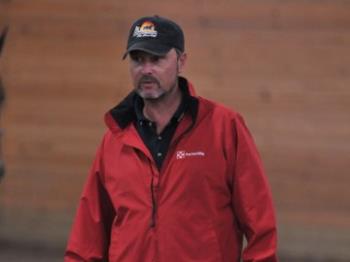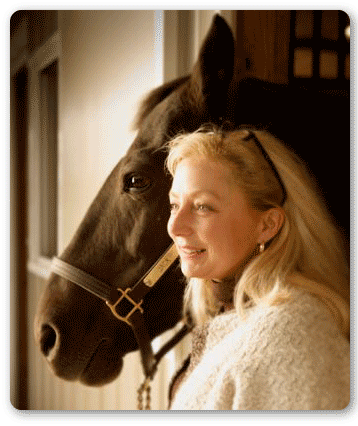Choosing a Trainer

Where do you begin? Use these tips to help you select the right trainer for you and your horse.
Choosing a trainer who is reputable is important to horse training.
Ask around the barn to see if anyone can recommend a good trainer in your area. Attend different shows and watch how each trainer works with their clients. Does the trainer yell excessively, or is he or she helpful and willing to listen to the client. Don't rush the decision. Interview several trainers and visit their barns to see how they act on their own turf. Question them about their experience and how they care for their horses. Talk to some of the trainer's clients to get their opinion and ask questions.
Talk about horse training goals and aspirations with your trainer.
A good trainer will help you determine at what level you and your horse should be showing. Your trainer will also give you an idea of what classes to start out in and what classes you should work toward. Your coach will tell you how you can achieve these goals and help you along the way.
For successful horse training, talk with the trainer about your horse and get his or her opinion on your horse's capabilities.
Can your horse help you reach your goals or will you eventually have to buy another horse. Is the trainer going to ride the horse, or are you going to do all the work yourself with the trainer's help. Many trainers also have assistants who help them ride. Does the trainer ride the horse or does the assistant. Make sure all of these details are clear before you start. It is a good idea to take your horse over for a lesson with a trainer before you make your final decision. Does the lesson leave you feeling excited about your potential for success or frustrated with yourself and the trainer. This is a good indication of whether this trainer will work for you.
Knowing what is expected between trainer and client will make the relationship easier to establish when starting your horse training.
Make sure your trainer is clear about all fees. Many trainers post a sheet with all pricing information. If your trainer doesn't, make sure you get everything in writing. Most trainers will also require you to sign a contract before you bring your horse to them. However, make sure you read the contract thoroughly. Look for hidden fees.
Inspect the trainer's facilities to have success with your horse training.
Will they promote the health and well being of your horse? Are the aisles cluttered and dirty? Are the stalls clean? Do the horses look healthy? If the answer is no, this is a good indication of the kind of trainer you are dealing with. A quality trainer knows the importance of a clean facility to ensure a good performance from your horse.
Make sure your horse trainer practices good ethics and sportsmanship.
Ethics are sometimes a controversial subject, but one that should be taken seriously. If the trainer doesn't practice good business ethics or care about the well being of the horse, he or she is in the business for the wrong reason. Good trainers care about the well being of both the horse and the rider. They insist on sportsmanship like conduct with their clients. They help the rider identify their strengths and weaknesses, not blame someone else for a loss.
Remember, finding the right trainer for you and your horse is worth the work. Find a trainer who will work with you and help you achieve your goals. Over time, it can prove to be a partnership that is invaluable in achieving success.
 Debbie has over 45 years experience with horses and equine-related businesses. She has owned, trained, boarded horses and run stables at various times in her career. She is a certified fence installer, has given balanced riding lessons, and has shown horses in Western, Western Pleasure, Trail, English, Hunter/Jumper, Fox Hunting, Hunter Trials, Dressage and driving classes. Debbie has been involved in foaling, and just about every aspect of horse ownership possible, and she welcomes your questions and comments. If you are interested in using any articles by Debbie, please send her an email.
Debbie has over 45 years experience with horses and equine-related businesses. She has owned, trained, boarded horses and run stables at various times in her career. She is a certified fence installer, has given balanced riding lessons, and has shown horses in Western, Western Pleasure, Trail, English, Hunter/Jumper, Fox Hunting, Hunter Trials, Dressage and driving classes. Debbie has been involved in foaling, and just about every aspect of horse ownership possible, and she welcomes your questions and comments. If you are interested in using any articles by Debbie, please send her an email.
RAMM Fence Systems, Inc. makes every effort to provide reliable and useful information on horse health, care and products. The statements made on this website are based on years of experience with horses, however, they are based on generalized situations and should not replace diagnosis or treatment by a veterinarian or consultation by a professional. RAMM Fence Systems, Inc. does not assume any legal responsibility. Readers should always consult qualified health care providers for specific diagnosis and treatment.
